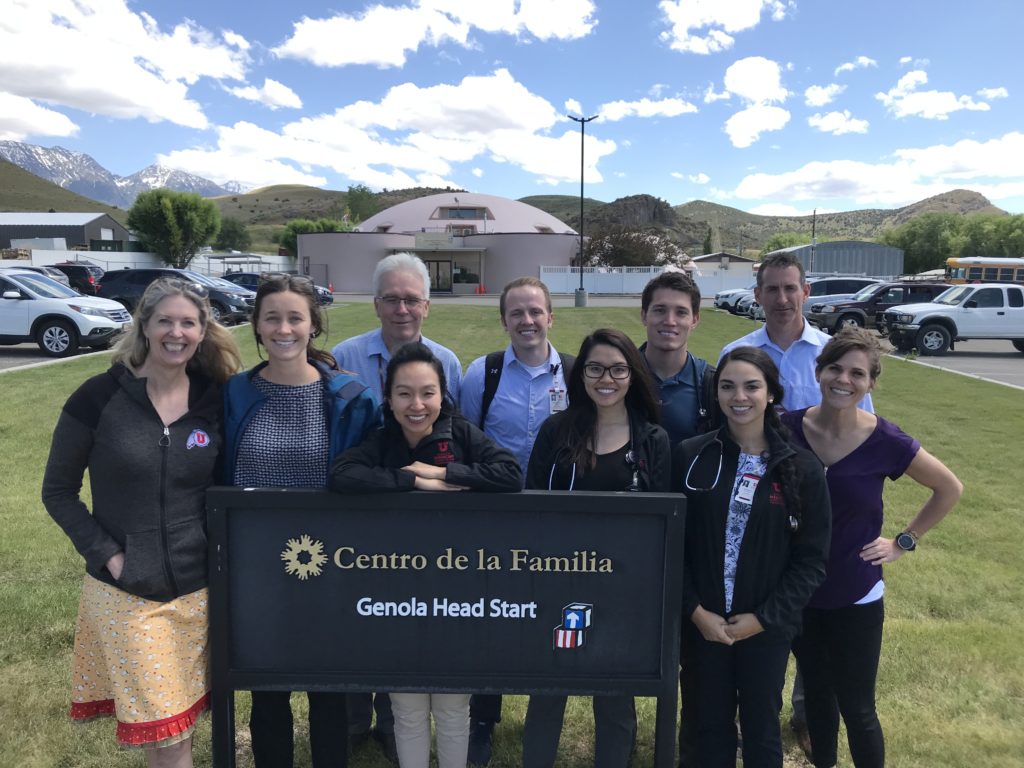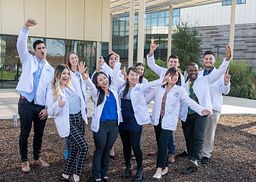PAEA 50th Anniversary: Fast Facts About the Utah Physician Assistant Program (UPAP) at the University of Utah
Courtesy of Jennifer Coombs, PhD, MPAS, PA-C, Director of Graduate Studies

Program Name & Location: Utah Physician Assistant Program at the University of Utah School of Medicine, Salt Lake City, Utah
Program mission, vision & values:
Mission: To improve the quality of health and access to care, with a commitment to the medically underserved, by educating students to become highly proficient, socially conscious, and accountable physician assistants (PAs) in the primary care model.
Vision: The University of Utah Physician Assistant Program will steadfastly be a leader in PA education by providing innovative and equitable academic and clinical environments to inspire graduates to fulfill our mission, while also contributing to the growth and advancement of the profession. To achieve our vision, the University of Utah Physician Assistant Program will:
- Sustain and foster inclusion and diversity that integrates social accountability and justice throughout our program development, and the recruitment and retention of diverse students, staff, and faculty
- Promote primary care as a means to improve health equity Create life-long, self-directed learners
- Collaborate and lead in local, national, and international communities
What year did your program welcome its first class of students? 1970
How many students have graduated from your program to date? Over 1000
How has your program grown from the first class to today? From its humble beginnings in 1970 with 11 students participating in a demonstration project, the Physician Assistant Program has grown into one of the nation’s top-ranked programs. Each year, more than 3,000 people apply for 68 coveted spots. Our graduates are versatile and collaborative, providing critical health care to people throughout the state of Utah, the Mountain West, and the nation.
How has your program contributed to creating a more diverse, just, and equitable profession? There is a focus on placing students in underserved communities during their clinical education, with rotations in rural Utah and the Navajo Nation reservation. We also have two student-run free clinics on our campuses in St. George and Salt Lake City. We are engaged in community-oriented masters projects that include collaboration with the Utah Health Department and community health centers throughout Utah focused on primary care, HIV treatment and prevention, and treatment for substance use in pregnancy.
Has your program helped expand the PA pipeline by participating in events such as PAEA’s Project Access? If so, how and when? Don and Kathy Pedersen have increased the global reach of the program and the physician assistant profession. They developed initiatives that have brought PA students to locales including Nepal, Thailand, and Papua New Guinea for rotations. They have also helped develop education programs for PA-like positions to countries around the world. Don Pedersen has led by example through volunteer international relief work, including his service in Thailand after the 2004 tsunami.
Early in his time as director, Don led an effort that stabilized the Utah Physician Assistant Program’s funding. He later successfully advocated conferring graduate-level degrees to program graduates. The Master of Physician Assistant Studies degree was authorized in 2000 by the Utah State Board of Regents. In 2010, the Division of Physician Assistant Studies was constituted within the Spencer Fox Eccles School of Medicine’s Department of Family and Preventive Medicine, with Pedersen as its first chief. Since retiring, he has remained an ardent supporter and trusted adviser.
How has your program impacted the community it serves? The cumulative impact over the years touches hundreds of thousands of lives today, especially those in underserved communities. We have expanded to Southern Utah and continue to participate in volunteer outreach activities in the summer including Migrant Farm Worker Pediatric Head Start, Care Fair, and a student run clinic in St. George and Salt Lake City.
How has your program impacted the PA profession at large? Jared Spackman, current program director of the Utah Physician Assistant Program, still holds the original precepts of the profession as an ideal: The drive to improve quality of health and access to care, with a commitment to the underserved.



